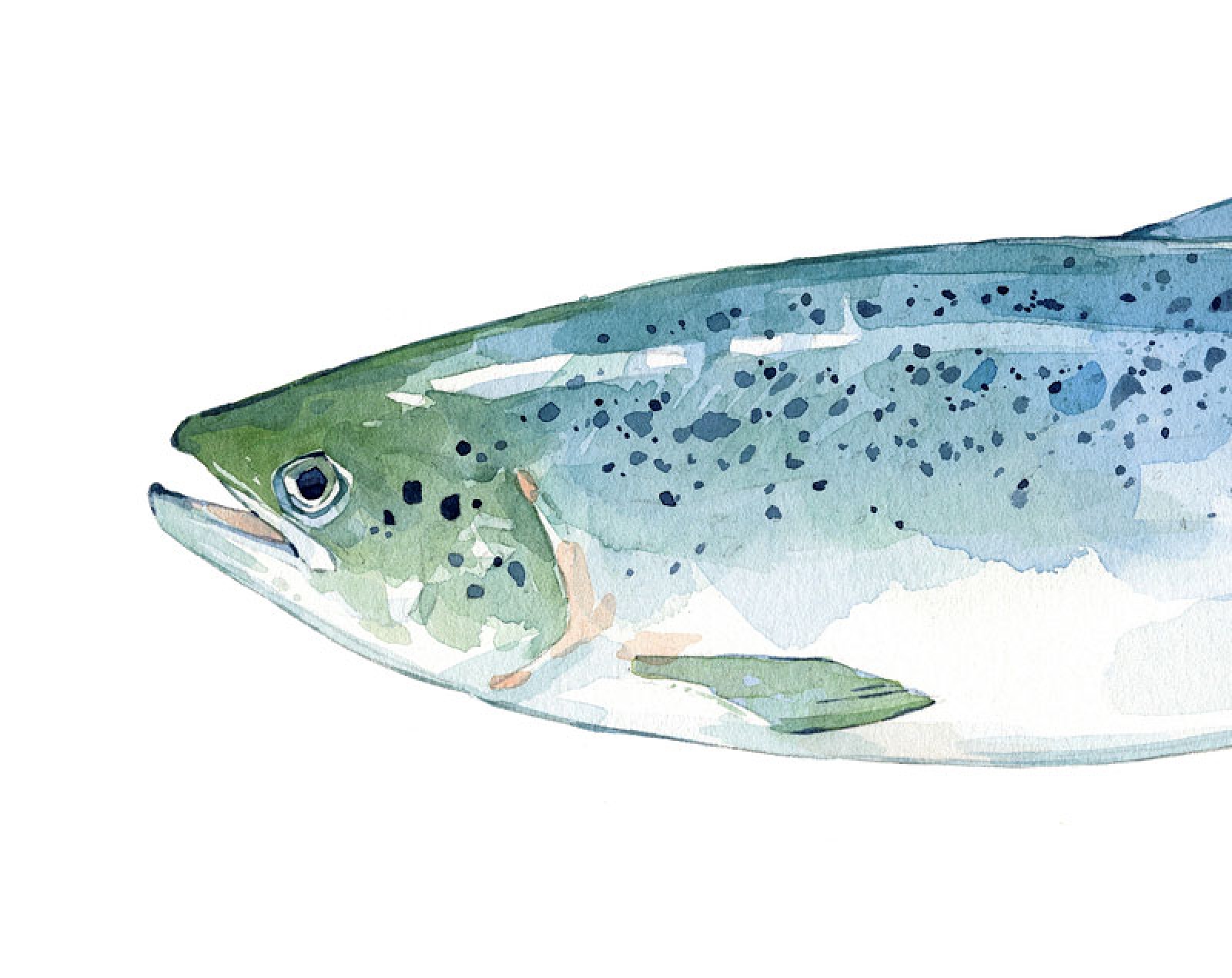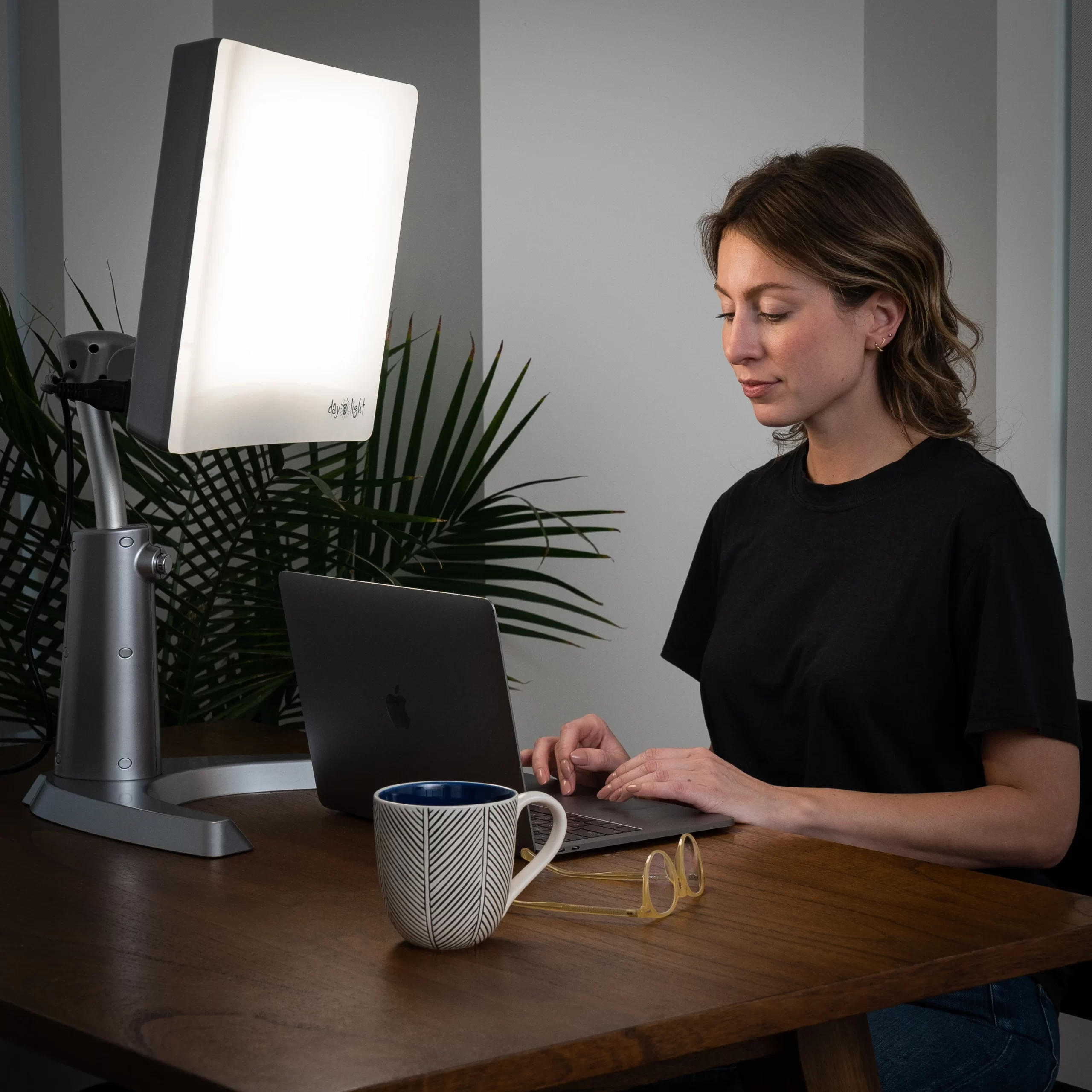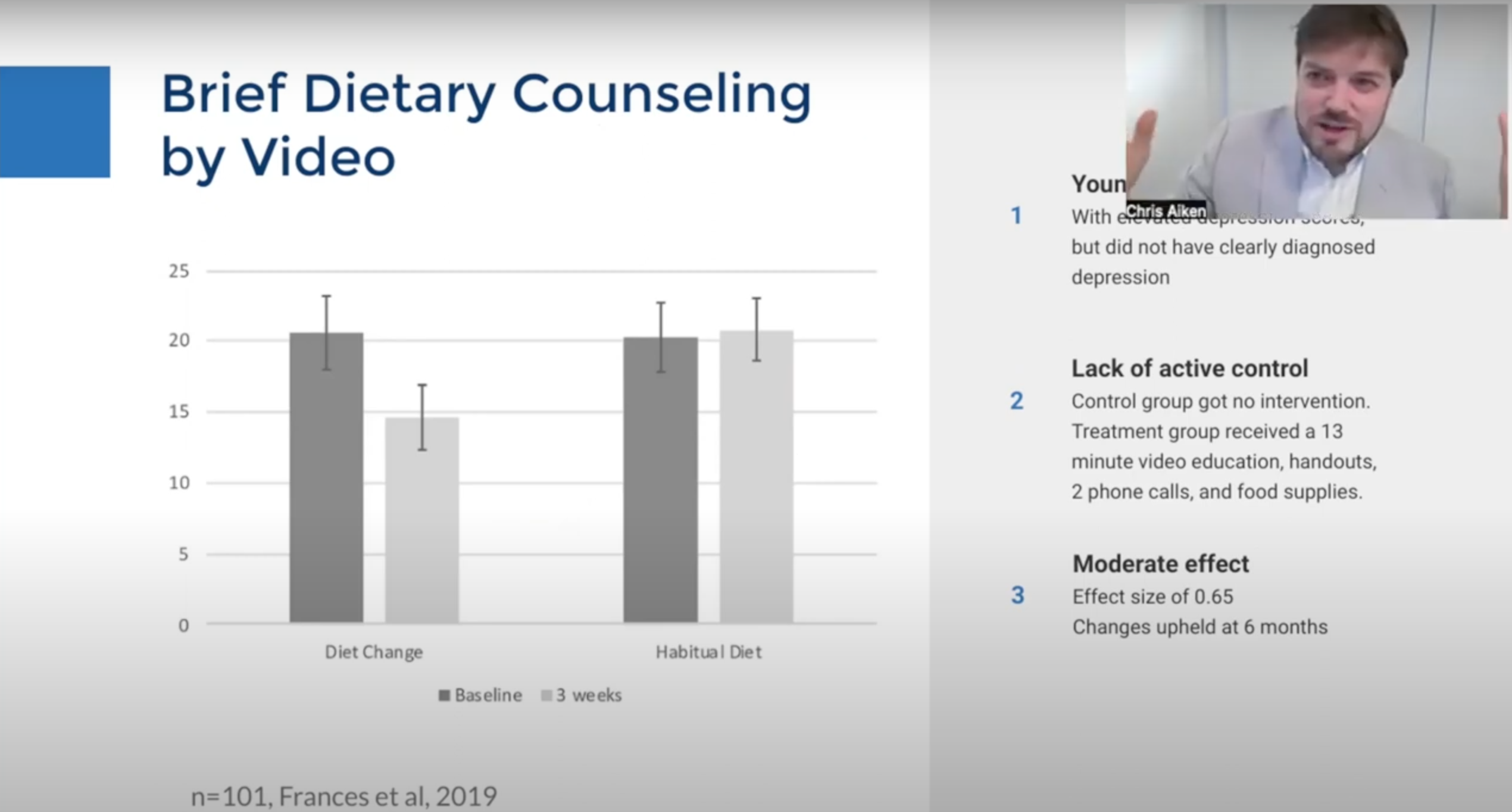Good for the Body,
Good for the Brain
The National Alliance on Mental Illness(NAMI) now recognizes that mental and physical health are actually not separate states of being. Research shows that what we eat can affect our brain’s wellbeing, just as it has effects on our other internal organs. In this video, Dr. Chris Aiken explains this concept further.

Omega-3 fatty acids
These healthy oils provide the coating brain cells need to be more flexible. They improve depression, bipolar, memory, and irritability. They also lower cholesterol and blood pressure, and help prevent many health problems including cancer, stroke, skin and eye disease. Most products don’t have the right ingredients for mental health, so check our list of approved products below.

N- acetylcysteine (NAC)
As the main antioxidant in the brain, NAC works to prevent aging and damage to brain cells. Food sources include oats, broccoli, bananas, soy beans, and wheat germ. NAC works better than medication for compulsive hair-pulling (trichotillomania). It also helps depression, memory, and a variety of addictions including marijuana, alcohol, nicotine, and gambling. It has been used in medicine for many years to treat lung disease and may lower the risk of heart disease and cancer.


Lavender
As aromatherapy, lavender helps anxiety and sleep, but did you know an extract of this plant is used as a prescription medicine for anxiety in Germany? A large study found that this oral form was twice as effective as a standard anxiety medicine (paroxetine, Paxil).

Light Therapy
Light therapy is among the best-studied natural treatments for depression. It’s well known to improve winter depression, and new research shows it treats depression in the summertime as well. Other uses include post-traumatic stress disorder, ADHD, binge eating, and sexual dysfunction. There are many steps to light therapy that have to be done well for it to work well, including purchasing the right type of lightbox (most boxes on the market are not designed correctly). Light therapy can worsen mood if it is used too late in the day.
An alternative form of light therapy is the Dawn Simulator, which creates a virtual sunrise in the bedroom. These devices have a modest effect on depression and also improve energy and alertness.

More Options
Each year research sheds lights on natural approaches to mental health. Ask us if the options below would be right for you.

Sensoril is a specially formulated extract of an Indian form of ginseng (also called Ashwagandhais or Withania somnifera). It is one of few treatments that improves cognitive functioning in bipolar disorder. People who took it had better short term memory, faster mental responses, and sharper intuitive thinking. It also improved brain growth in the memory center, called the hippocampus. READ MORE.
Extracts of the saffron herb have beneficial effects on brain health and treated depression in a series of studies. People also take them for weight loss. READ MORE.
Ginger has long been used to improve nausea, and can be taken safely with psychiatric medications to reduce that side effect. Most ginger ale products do not have natural ginger in them, but you’ll find effective sources of dietary ginger as well as aromatherapy and capsule forms in our guide. READ MORE.
CocoaVia is a concentrated extract of the flavanols that are responsible for much of the health benefits of dark chocolate. It improves blood flow, blood pressure, and one study found it brought the memory of 65 year-olds down to that of 35 year-olds on average. It also improved growth in the brain’s memory center, called the hippocampus. READ MORE.
Tumeric is often used in Indian cooking and may be responsible for the lower rates of dementia found in that country. This extract of the tumeric root (also called curcumin) improves depression and memory, particularly in older adults. It can increase the risk of kidney stones. READ MORE.
This carbohydrate is found in cantaloupe, grapefruit, oranges, and beans. It improves communication between brain cells, and small studies have found benefits in bipolar, panic, obsessive compulsive disorder, and binge eating.
Probiotics are the healthy bacteria that help balance the gut’s flora. Many people take them for gastrointestinal health, and small studies have found they also reduce anxiety. They reduce inflammation and play an important role in the mind-gut connection. READ MORE.
Over a dozen controlled studies have confirmed that this natural compound treats depression. It also improves brain health through neuroprotective effects. READ MORE.
SAMe is one of the best studied an most effective natural treatments available. It treats depression as well as an antidepressant, and has similar properties to antidepressants. That means it should be taken with caution, as antidepressants can worsen mood in some people. SAMe is the main methyl donor in the body, and it has numerous health benefits in the body particularly for liver health


